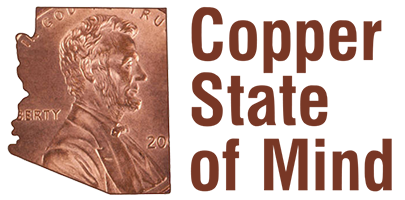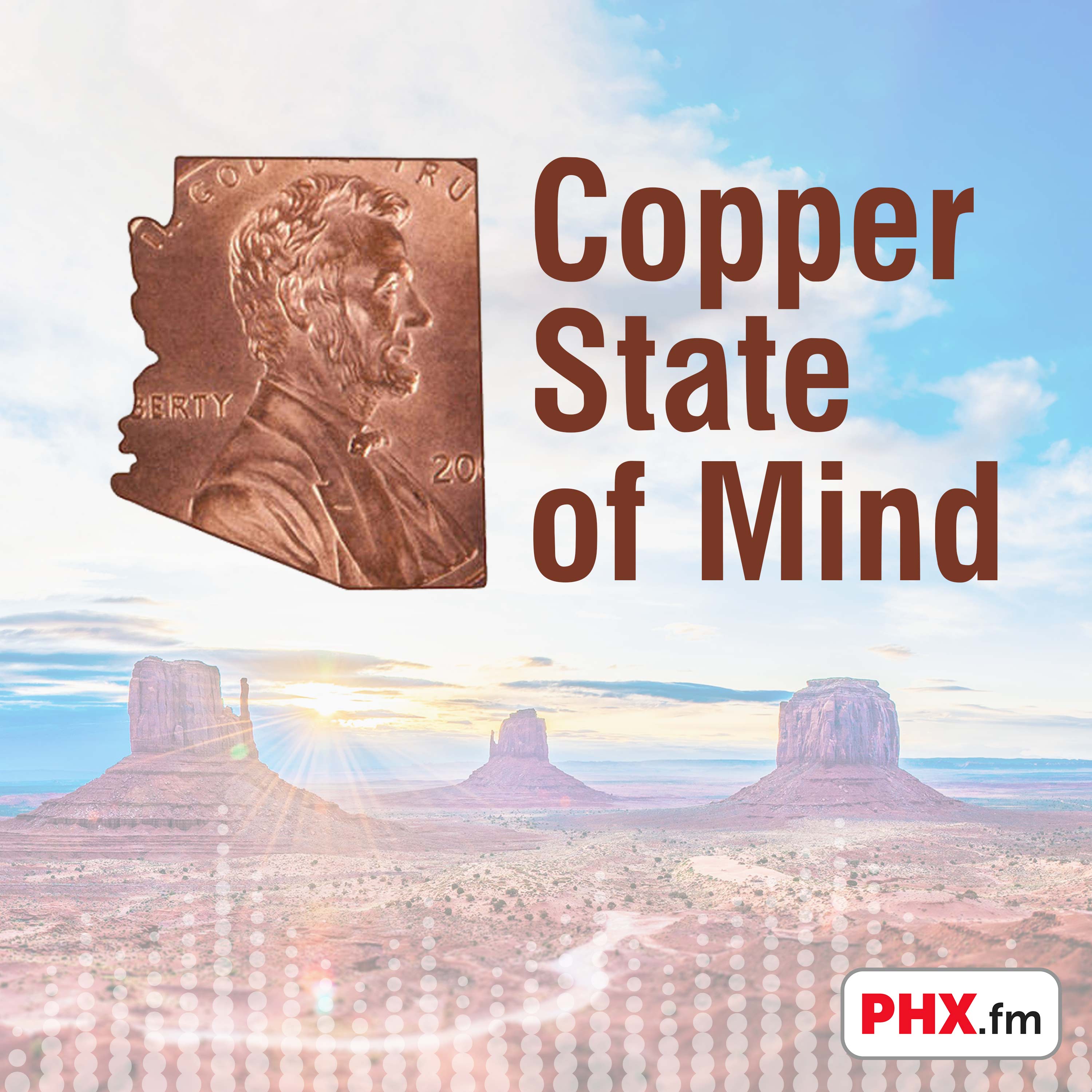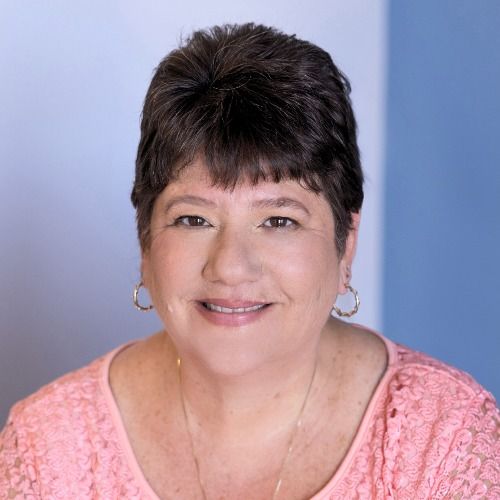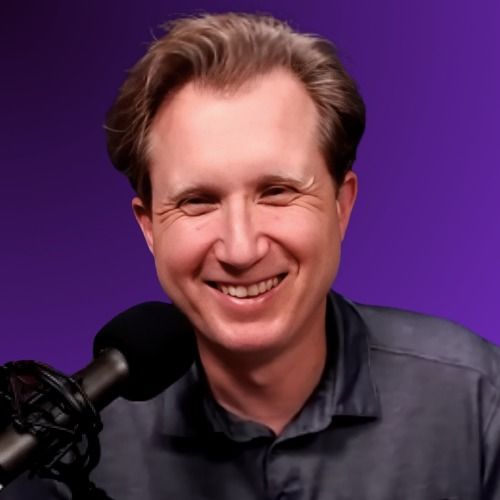The End of Celebrity Endorsements? Meet the New Brand Champions
This episode explores how employees can become powerful brand ambassadors, influencing public perception and enhancing brand communication.
Abbie and Adrian discuss findings from a PR Week/Cision study showing that today's audiences increasingly trust employees' voices over paid celebrity endorsements.
This change marks a notable shift in consumer behavior and brand strategy, showcasing the critical role trust plays in modern marketing.
Read the transcript and notes for this episode on our website.
Key Takeaways
- Celebrity endorsements were once the gold standard for advertising, but times have changed significantly.
- Surprisingly, employees are now seen as the most trustworthy and influential representatives of a brand.
- Brands can harness the power of their employees to amplify messages and build trust among consumers.
- The shift in trust from celebrities to everyday employees highlights a major change in consumer behavior and perceptions.
- It's essential for companies to empower employees to share authentic experiences and perspectives on social media.
Follow the podcast
If you enjoyed this episode, please follow Copper State of Mind in Apple Podcasts, Spotify, or any other podcast app. We publish new episodes every other Friday. Just pick your preferred podcast player from this link, open the app, and click the button to “Follow” the show: https://copperstateofmind.show/listen
Need to hire a PR firm?
We demystify the process and give you some helpful advice in Episode 19: "How to Hire a Public Relations Agency in Arizona: Insider Tips for Executives and Marketing Directors."
Credits
Copper State of Mind, hosted by Abbie Fink and Dr. Adrian McIntyre, is a project of HMA Public Relations, a full-service public relations and marketing communications firm in Phoenix.
The show is recorded and produced by the team at Speed of Story, a B2B communications firm, and distributed by PHX.fm, the leading independent B2B podcast network in Arizona.
If you enjoyed this episode, you might also like the PRGN Presents podcast, hosted by Abbie Fink, featuring conversations about PR, marketing, and communications with members of the Public Relations Global Network, "the world’s local public relations agency.”
Transcript
There was a time in "the good old days" of advertising when the best way to sell a product or promote a brand was to get a really famous person to endorse it. Whether it was toothpaste or cigarettes--maybe the good old days weren't all that good--celebrity endorsements have carried a lot of weight with the general public. That's no longer true. And there's some surprising insights as to who is, in fact, a more influential voice of brands for today's audiences. Abbie, what's on your mind?
Abbie Fink:Maybe not so surprising about the who, but that the brands are now recognizing that this entity that they have at their disposal is actually a powerful voice. And that's your own employees, right? These are your brand ambassadors. The people in-house are carrying more weight in creating influence and sharing brand messaging than those other paid endorsements. We now call them influencers.
But we've been talking about this PR Week / Cision study in our last episode, and they also looked at what is influence and who is becoming an important influencer. And for the first time in the eight years that this study has been done, employees are topping the list.
Now, those of us that are in this space, it's not really that surprising to me. We've been talking about the idea of brand ambassadors for a long time, but really from a survey mechanism and actually putting some data behind it. And what I find most fascinating about this is really the shift in trusting your employees to be that brand voice.
And it is not just left to those that are paid to create the content and share on their social channels, but really empowering your workforce and asking them should they be so inclined to share content and share their view of the business of the brand in a more public way. And I think that's a pretty amazing statement and a really powerful way to activate your employees on behalf of your organization.
Adrian McIntyre:Now, I do have to say that this is a little bit counterintuitive. I mean, maybe for people working directly on these kind of campaigns, the writing's been on the wall for a long time. But to think that, you know, the kid in the mailroom or a line employee is going to be carrying more weight than John Wayne or Michael Jordan or Oprah or whoever, it really is... Even if it's been slowly, slowly, slowly, now suddenly it really is a seismic shift in who the public believes. And I really, like, Abbie, what you said a minute ago about how there's two sides to this trust equation. One is, who do customers and clients trust to represent the brand? And then who does the company trust to be its spokespeople? That's an interesting double pairing.
Abbie Fink:Well and I think of this in the employee as your brand ambassador may not be an official responsibility, right? Where you know, if I'm the social media manager or I am a paid influencer, I have a very specific job description that says I will talk about brand X on social, I will be the spokesperson.
I think where this is gaining traction is that it is the non responsible, if that's the right way to put it, non responsible employee that's being given and empowered to do so. And what it comes back to for me is this idea of influence and who as a consumer are we most influenced by? Who do we trust? Who do we go to to help make decisions?
There's one thing when we see a celebrity endorsing a particular brand of shampoo or new lipstick or shoes and we say okay, well they've been paid to do so, that's what they're supposed to do. But if my buddy says I've just tried, I work for, I think this, it changes the way we view.
And I remember my early days of talking about social media, trying to teach the concept of social media to non communicators. And I said think about it in a normal conversation. Hey Adrian, I am looking for a dry cleaner. Who do you recommend? And you say I go to Bill's Dry Cleaning on the corner. Fantastic. I'm going to take my stuff to Bill's Dry Cleaning. Adrian likes them, he trusts them. I'm going to trust them as well.
Social media gave us a platform to put that information out there in a bigger context. I'm not so sure that it's quite the same anymore. It's become much more of a strategic element but there's still a lot of, "I'm going to be traveling. Anybody have recommendations for restaurants?" "Where can I go to ..." fill in the blank. And we can still get that information from who we would deem influencers in the formal sense.
But I will take a recommendation from somebody that has experienced it works there, visited there recently, good, bad or otherwise in a different way than I will a paid influencer. There's place in the communication strategy for that individual.
But where this study has found and what it is, it is I think trying to get those of us that manage this type of thing to capitalize on is we have this army of individuals there in our disposal that if we empower them with good information, that we encourage that, that it still has to be part of you know a strategy and managed, but giving them a little bit of free rein to have that conversation. We're starting to see it move the needle a little bit.
And that requires those of us that are responsible for it to say, okay, we're going to let this happen. We still have to pay attention to it. We can't just let them run off willy-nilly and doing things.
But we do have this opportunity to let others help share our voice. And you know, I think there are certain industries that might find this more beneficial or find it to be a little easier to let it happen.
Maybe those that are more highly regulated organizations may feel that they have to keep it a little closer to the vest and manage it a little bit more.
But if I'm a nonprofit organization and I'm running on a small staff or a small business that's growing, and I have individuals on my team that are comfortable in the social space, that enjoy doing it, that have the wherewithal to be smart about it, why wouldn't I want to capitalize on their willingness to do it?
Adrian McIntyre:Now, there's some interesting patterns that emerge when you really dig into the data in this PR Week / Cision report and I think we should call them out because the story is not uniform across industries. But the big picture story is, as we've been saying, this shift towards employees, also everyday consumers and interestingly enough, corporate executives. Those are the top three categories of influencer who the public says they believe the most.
The least influential are celebrities in general, then micro influencers--that's influencers with a small following, a thousand to a hundred thousand followers on social--macro influencers, those big accounts with a hundred thousand or more followers, and then niche influencers who focus on a very specific topic or field.
Now the one place that this doesn't apply is in the arts, entertainment and media industry where celebrities are still in the top three because of course they their domain expertise. They actually are in a way employees if you think about it, of quote unquote Hollywood. Although as anyone who's ever been there knows the phenomenon "Hollywood" and the City of Hollywood are not the same thing.
Abbie Fink:Correct. Topic for another time.
Adrian McIntyre:Another time, another time. And there's a great Denny's on Sunset Boulevard. If you're there at 2:00 in the morning, as I often was in college, you can see a whole slice of humanity. Anyway ...
Abbie Fink:Whole lot of influence going on there.
Adrian McIntyre:Whole other thing. Everywhere else it's employees and everyday consumers who tend to dominate in terms of their trustworthiness, their influence. Here's what I think is fascinating. So takeaway number one. If you look at their graph in the study, it's almost an inverse of audience size. In other words, celebrities are the most well known, have the most followers, if you will, and then all the way down to employees, probably have no meaningful audience of their own. Everyday consumers, they also haven't gone out trying to build a following online.
Corporate executives, despite their PR firms and internal comms people trying to get them to do this more, they really haven't in any significant way. There are exceptions. Journalists and niche influencers are kind of the same thing these days, but are right in the middle.
So what does that mean? We tend to trust people who aren't in the audience business, who aren't trying to monetize their fame or their reach. That's fascinating.
Abbie Fink:Well, and makes a whole lot of sense. I mean, again, it goes back to this concept of trust, right? I mean, I read the gossip magazines and I follow the, you know, the celebrities that I enjoy and you know, okay, maybe to some extent, if they say they like something, I might at least click on it and take a look. Do I go buy it? Because they said so? Maybe not.
And I, and I may not be your average consumer, given what I do for a living, but again, if it's, if it is the common person, the everyday consumer that says, I've tried this product, I've been to this organization, I've been to this restaurant. This is what I observed, this is what I liked. I know and like and trust that person's opinion. It elevates their, their viewpoint in a different way.
And you know, there's, there's room in all of this, you know, for all of these things to be successful. But I, I, I hadn't looked at it quite the same way that you did and that the, the more influence comes from a group of individuals with less of an audience. But if, if we, I've harped on this before, numbers aren't everything.
I would rather have 50 very engaged followers that take action than 5,000 that do absolutely nothing with the information that I'm giving them. And maybe this is where this is coming, right?
So my circle of influence with my couple hundred people that pay attention to what I have to say is more significant and takes action and actually does something with the information that I'm sharing versus the larger individuals with multiple followings that we tend to scroll through and just acknowledge. The area, though, that I do think is something for all of us to pay attention to is this idea of the Niche influencer.
And those are individuals that are taking on a very specific topic or industry to be influential within. They're not just out there taking on everything and anything that comes their way. And to some extent, you might call an employee a niche influencer as well.
But the idea that these folks have maybe taken the time to really understand it, researched it, made some logical viewpoint about it, and that's why they're going out there and talking about it. All of this, to me is really talking about the importance of influence. When you are creating a strategy, where do you put that information?
What is the best vehicle to get that out? This doesn't completely discount other forms of communication. You started at the top of the podcast about advertising and celebrity endorsements.
And we certainly have a lot of other earned media and other things that help shape public opinion. And it really is, where do we create these partnerships? Who's going to have the most persuasive voice in terms of action we want someone to take?
And how do we capitalize on all those opportunities to move our audiences to action, whatever that action is intended to be?
Adrian McIntyre:We've talked a number of times on this podcast about the issue of trust in general and the declining trust that people around the world, not just in the United States, have in government, in the media, in nonprofits, in healthcare systems, in all these institutions. So there's a much bigger issue at play here.
And one of the things that I continually find interesting is who we still say we trust, right? Suspicion and cynicism are the norm, but who do we believe? You would think, I think, that the most believable person would be somebody who has no vested interest in the thing, just happens to love the product. The everyday consumer type person, you know, the person on the street who says, oh, I just can't wait to get another, you know, frozen yogurt or whatever. Whatever the product is.
However, it's interesting to me that in most of these industries, it's employees and corporate executives who are now, and this is recent, they have now taken the lead. These people work for the company that sells the service or the product, usually products that that's being promoted. And yet we still believe them more especially the everyday employee folks.
There are a number of examples in the report, which you can look up for yourself. But people who are working for a company and who can be shown in a social media campaign or a video series for YouTube or still over the air or direct OTT direct commercials for television or for streaming, that does really well and I think it's because we relate to these people. These are people who, who have a job. They just happen to love their job. They happen to love the product.
They bring some joy or some zest or some whatever to the, to their work, to us. That has the ring of authenticity. That has the ring, you know, they don't have to be featured in this YouTube series. They could have said no. But they're relatable. We trust them. It seems to be authentic.
Even though those of us who work on the other side of this know that everything is carefully constructed and, you know, scripted and lighting and angles and everything. Right. So it's still a production, but this is far more believable to us than a celebrity who will say anything for a $10 million check.
Abbie Fink:And maybe it's because we see ourselves in that we can picture, you know, the us in the imagery or in the conversation that's happening. And, you know, I think to some extent, some of the what this survey is finding is maybe more of the organic efforts. It's not so much.
I mean, there are certainly, you know, these are actual employees in this commercial who say these things, but they've been picked because they represent or cross representation of the organization, et cetera.
But I think where this becomes important is in that organic, unplanned sort of way, in that they are just naturally enthusiastic about what they're working on, where they're working. They're excited about a particular new product or an investment in an organization or that we volunteered or whatever it might be.
And I don't necessarily, you know, I see this as I'm really excited my company volunteered. We helped do such and such. I'm so excited about my company's commitment to giving back that kind of a post.
And then I see that and I go, oh, wow, that's really amazing. They're super supportive of this nonprofit. That's an organization that means something to me. I need to purchase a new widget. That company is a widget seller. I'm going to at least give them the benefit of the, you know, taking a look at their product because they support something and their employees are excited about doing it. So it, to me is where this, this influence is coming from. It's, it's not go out online and talk about how amazing the widget is.
It's more about how amazing the company is and the investment in the employees and the community and whatever it is that I use to evaluate where I'm going to spend my hard earned dollars as a consumer becomes part of the way I make my decisions, if I see that they're a good community partner, or again, whatever it is that is relevant to me as I'm making my decisions. Yeah.
Adrian McIntyre:As we wrap up this conversation, let's do a couple of practical takeaways. I mean, I could see a couple in here, and I'd love to hear your thoughts as well.
The first is look to your people for some genuine, authentic voices who you might feature in any number of communications or campaigns, because people really respond well to that. The second is look to your executives.
Remind them that people say they trust corporate leaders more than almost every other category, even as trust for everyone is declining, and encourage them to find a voice and find a way to share.
And then the third thing is what you said, Abbie, a minute ago, is really think of your employees not just as the people you might feature, but also the people who can help amplify your content. Create an employee advocacy program where people can actually share the post the comms team and the agency partners are creating so that it really does reach out.
Abbie Fink:And it's important, I think, to demonstrate your trust in them to do that for you. You know, it's one thing, you know, the corporate executive that says, you know, we encourage you to do these types of things.
They need to see the corporate executive doing those things that he. He or she also needs to be sharing and reposting and commenting and things like that, and embrace the idea that.
That other voices in the conversation are going to be relevant and, and pay attention to what those voices are doing and how they're using the information.
You know, we will often say, you know, if you've identified yourself as working for this company on your LinkedIn profile or on your Facebook profile, you've become in, you know, without even attempting to, you have become a spokesperson for the organization.
Capitalize on that and give the employees in your company, whether you're a small organization or a large entity, the trust and the wherewithal to be able to do this and encourage that to happen. And leave the very official kinds of conversations and shareable content to the individuals that are responsible for it.
But encourage others to be an active voice on your behalf. And I think you'll notice and you'll start to see how that influence, that influence of your employees and, and defined by that, your leadership as well, start to actually make a difference in how you are perceived and how people interact with your brand and how people support your organization because they are supporting your organization because of the individuals that make it work.
Every single day, and let's put some of that power into their hands and watch how that voice becomes stronger and amplifies the important business that you're doing.
Adrian McIntyre:Thanks for listening to this episode of Copper State of Mind. If you enjoyed the conversation, please share it with a colleague who might also find this podcast valuable.
It's easy to do, just click the "Share" button in the app you're listening to now to pass it along. You can also follow Copper State of Mind in Apple Podcasts, Spotify, or any other podcast app. We publish new episodes every other Friday.
Copper State of Mind is brought to you by HMA Public Relations, the oldest continuously operating PR firm in Arizona. The show is recorded and produced by the team at Speed of Story, a B2B communications firm in Phoenix, and distributed by PHX.fm, the leading independent B2B podcast network in Arizona.
For all of us here at Speed of Story and PHX.fm, I'm Adrian McIntyre. Thanks for listening and for sharing the show with others if you choose to do so. We hope you'll join us again for another episode of Copper State of Mind.





